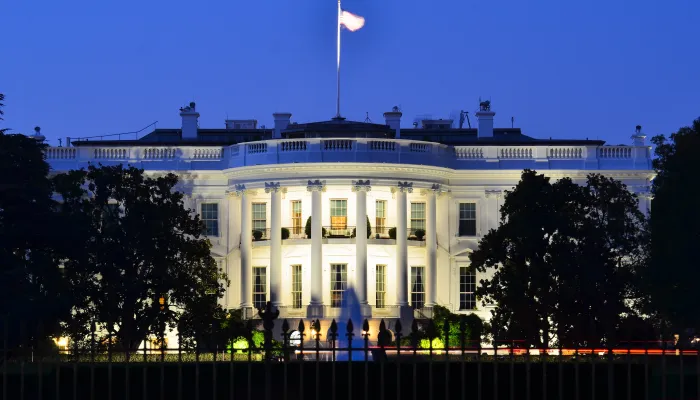Deficit Bubble Boiling, Trouble is Close Behind
Roll Call | February 28, 2008
In recent years, America has lurched from one economic bubble to the next. Early this decade, the dot-com bubble burst, sending financial markets into a tailspin. As lower interest rates helped to ease the bursting of that bubble, we shifted to over-investing in housing -- again culminating in a tremendous misallocation of resources and economic losses, as we currently are seeing. Now, as we try to contend with the bursting of the housing bubble, we face what may be the most dangerous type of bubble yet: the deficit bubble.
As the economy softens, and Congress is trying to ease the blow with a costly "fiscal stimulus" package, the deficit is again starting to balloon. For the first four months of this fiscal year, the deficit has been twice what it was last year.
Sure, the president's recently released budget projects that we will turn a predicted $400 billion deficit into a surplus by 2012. But these predictions paint a rosy picture of the government's finances by leaving a number of important parts of the budget out. When the Committee for a Responsible Federal Budget made its projections, we, unlike the president, included the costs of continuing to patch the alternative minimum tax and funding the war on terror, among other things. These are not unlikely events -- in fact, they are almost certain to occur -- and everyone in Washington knows it. Under these assumptions, we found cumulative deficits up to $6 trillion over the next decade and the debt quickly growing to unsustainable rates.
Large deficits are a problem for several reasons. First, they crowd out private investment and force us to borrow capital from abroad. Second, they add to the debt, weakening the United States' future borrowing position and increasing the amount of the budget we must dedicate to interest payments to holders of U.S. Treasury bonds. And, they impose large taxes on future generations that have no say in the matter of the debt that is being racked up for them to pay. Try looking your kids in the eye and explaining how that is fair.
Just like all bubbles, we know how this story ends. We overestimated the value of our tech stocks until that bubble burst. We overestimated the value of our homes until that bubble burst. And now we are overestimating the amount that we can borrow and remain financially secure into the future. When that bubble pops, either in the form of skyrocketing interest rates or a currency crisis, the disruption through the economy will be profound.
This bubble is more pernicious than the previous two because when it pops we will be left with almost nothing to show for it. The tech bubble and housing bubble were both caused primarily by overinvestment. When they burst, many people lost a lot of money, and many more were unable to borrow, but at least we were left with fiber-optic cables in the ground and houses around growing cities. Our deficit, on the other hand, primarily finances a consumption-heavy budget that continues to underinvest in education, infrastructure and R&D. Our overspending leaves little in its wake to help us rebuild after a crash.
China and Japan already have begun scaling back the amount of U.S. debt they are willing to take on. Great Britain has picked up most of the slack but cannot be expected to do so forever. As the purchase of our debt slows, we will become less able to pay off old investors with funds from new ones. When our debt comes due, we will have to start dipping into American wallets with higher taxes and lower government spending, forcing Americans to cut back on consumption in drastic fashion.
We have an opportunity to avert disaster by recognizing this bubble before it implodes. The solutions are relatively straightforward. First, budget constraints including credible spending caps and pay-as-you-go rules that require new tax cuts or entitlement programs be fully paid for have to be stuck to without relying on gimmicks. Borrow and spend is not an option.
Second, the budget has to be gradually brought back into balance. None of the presidential candidates running for office has come forth with a realistic plan to balance the budget, but they should -- and we should insist that they do.
Finally, achieving budget balance in the short run will not be enough; legislators have to turn their attention to the spiraling costs of the nation's largest entitlement programs -- Medicare, Medicaid and Social Security. Perhaps it will take a commission; perhaps we should have another summit as we did in 1990; but most importantly, we should stop delaying.
Change comes either through leadership or crisis. There is still a chance of leadership. A crisis triggered by the bursting of the newest deficit bubble would undermine any promise for constructive change in our democracy.
For more details on the projections made by the Committee for a Responsible Federal Budget, please see "A First Look at the President's FY 2009 Budget" and "More Details on the President's FY2009 Budget."


